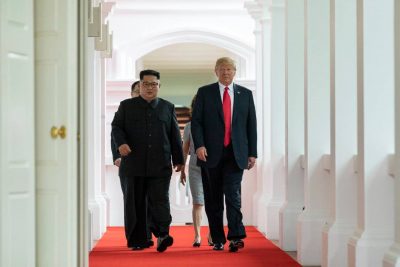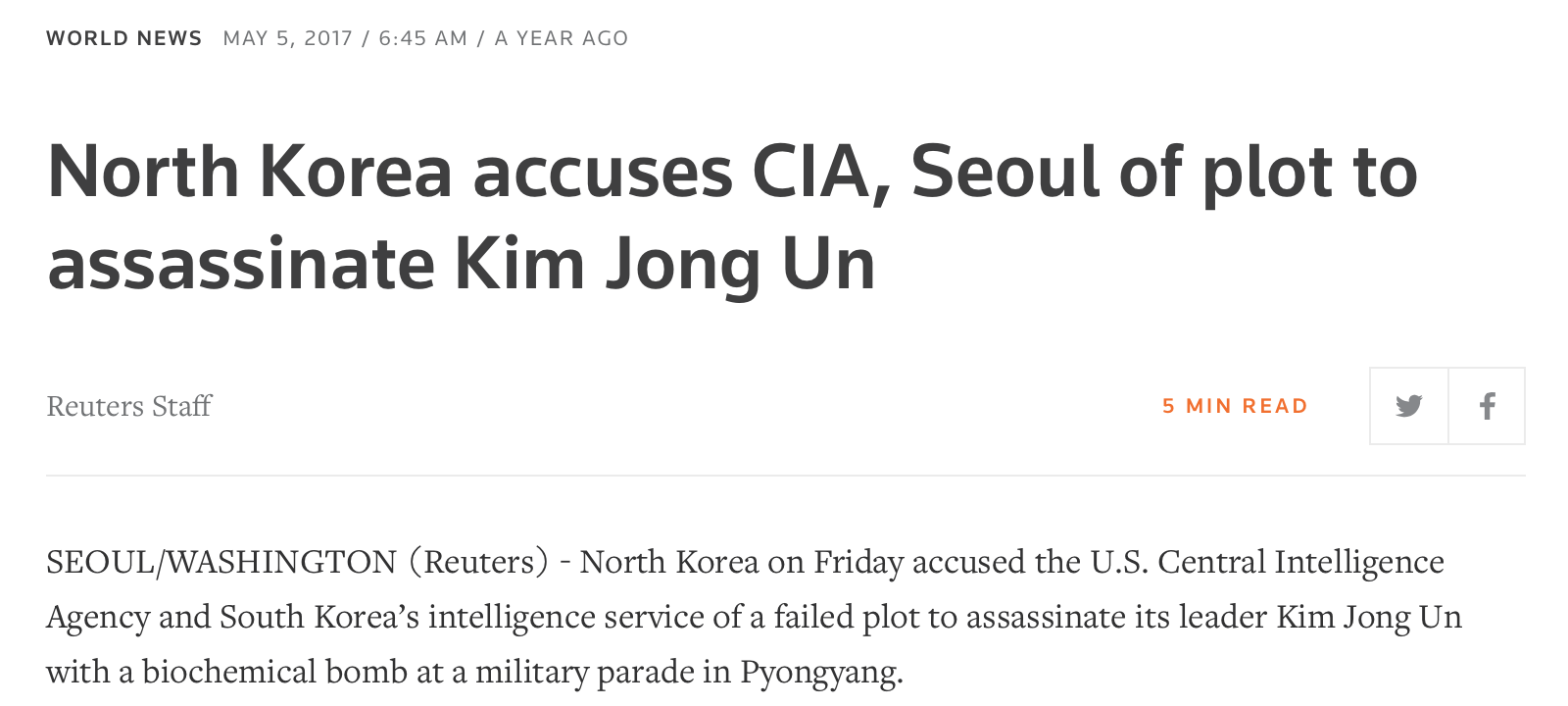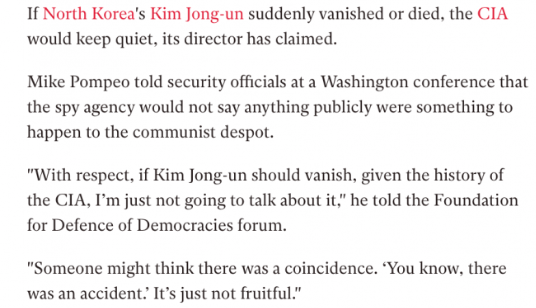Aftermath of the Trump-Kim Summit: Unilateral Denuclearization, Continued US Military Threats, Economic Sanctions

Michel Chossudovsky reporting from Seoul, South Korea, June 16, 2018
**
The Trump-Kim Summit Joint Statement includes an unwavering commitment on the part of the DPRK to carry out a complete denuclearization namely the abandonment of North Korea’s nuclear weapons program.
In exchange for what?
Nothing on the part of the US.
President Trump committed to provide security guarantees to the DPRK, and Chairman Kim Jong Un reaffirmed his firm and unwavering commitment to complete denuclearization of the Korean Peninsula.
The economic sanctions regime prevails.
Empty promises of guaranteed security? Under the terms of the 1953 armistice agreement, the U.S. is still at war with the DPRK.
The history of the US led war against Korea and its aftermath are not mentioned. In the course of the Korean war (1950-53), thirty percent of the North Korean population was wiped out, 38 towns and cities were transformed into rubble.
And the media casually portrays the DPRK as a threat to global security.
The Joint Statement was extremely precise with regard to the DPRK’s commitment to “denuclearization”.
If negotiations regarding “denuclearization” break down, Trump had threatened to implement a new set of sanctions:
“The sanctions will come off when we are sure the nukes are no longer a factor…” said Trump
ROK president Moon had demanded the suspension of the US-ROK war games directed against the DPRK to no avail.
Under the US-ROK combined forces command, all South Korean Forces fall under US command. The South Korean president is not the Commander in Chief and cannot under any circumstances veto the conduct of joint war games.
The suspension of the May US-ROK “war games” were used as a means to enforce a unilateral process of denuclearization:
“president Trump agreed to suspend military exercises with South Korea in return for a commitment to denuclearisation from North Korea.
“Trump said the war games were expensive and “very provocative”, and yet stopping them has been called a “major concession”, something the US has previously rejected as non-negotiable on the grounds that the exercises are a key element of its military alliance with Seoul”
What is striking in the formulation of this Joint Statement is the absence of a legal framework.
The 1953 armistice agreement prevails. The three countries (DPRK, China, U.S.) are still at war. The armistice agreement is simply not mentioned. Will it be rescinded? In turn, the Korean peninsula is militarized. More than 28 thousand troops are stationed in the ROK.
The US has a joint defense agreement with the ROK. Will that agreement be rescinded. The terms of the Kim-Moon Panmunjom Declaration, would require the scrapping of the combined forces command which puts South Korean forces under the command of a four star general appointed by the Pentagon. While the Singapore Joint Statement acknowledges that the DPRK would carry out “denuclearization” under the terms of the April 27, 2018 Panmunjom Declaration, the U.S. does not in any way signify its endorsement of the inter-Korean dialogue.
Unilateral Denuclearization
The Joint Statement requires the DPRK to abandon its nuclear weapons program, while ensuring the continued development of the US nuclear weapons program under a 1.2 trillion dollar project.
The deployment of America’s nuclear arsenal Worldwide will also be pointed at Korea: unilateral denuclearization on the part of the DPRK does not ensure the denuclearization of the Korean peninsula. Quite the opposite: it favors a move towards hegemonic control over nuclear weapons by the US and its NATO allies.
GRTV Video: Michel Chossudovsky reporting from Seoul, South Korea
What comes Next? The Insidious Role of Mike Pompeo
The Joint Statement confirms that Secretary of State Michael Pompeo will be in charge of the negotiations which up to now have been conducted by means of threats of military action, intimidation and continued economic sanctions.
In the lead up to the Singapore Summit, the CIA under Mike Pompeo played a key role in the negotiations. He was in Pyongyang for talks with Kim Jong-un on the Easter weekend which preceded the Singapore summit.
Followup negotiations are to be carried out by Secretary of State Mike Pompeo and White House National Security Advisor John Bolton.
Neither of these Trump appointees are committed to peace. It is worth noting that back in May 2017, the DPRK had accused the CIA and its counterparts of South Korea’s National Intelligence Service (NIS) also know as the KCIA of plotting to assassinate Chairman Kim. (This accusation was also directed against the KCIA team under impeached president Park).

Barely six months later, in October 2017, Mike Pompeo intimated in a public statement that Kim Jong-un was on the hit list of the CIA’s political assassination program (which confirmed that the DPRK’s earlier statement regarding an alleged assassination attempt was not out of the blue).
Then in February 2018 at the height of the Olympics and the inter-Korean dialogue, the Pentagon threatened to wage a “bloody nose” attack, involving the possible use of a so-called mini-nuke or tactical nuclear weapon.
It is worth noting that the Trump-Kim Joint Statement, does not explicitly mention Washington’s support of the Kim-Moon Panmunjom Declaration. In fact from the very outset, Washington has been involved in the sabotage of the inter-Korean dialogue.
From a geopolitical standpoint, North-South reunification would weaken U.S. strategic interests in Northeast Asia.



